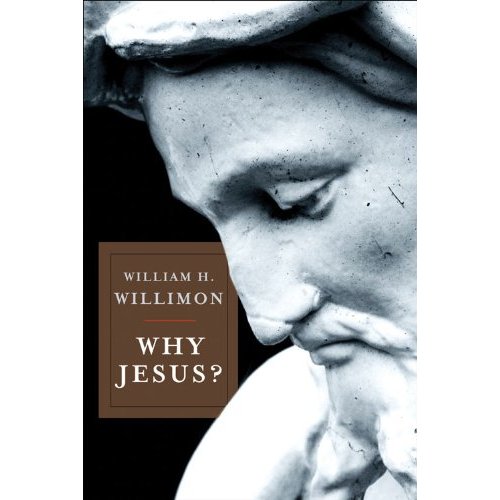In this chapter Will is asking some profound questions about how we distinguish between magic and medicine, between magic and miracle. One of his more salient points is “it’s medicine when we believe it works and the government certifies it. It’s magic when we affluent, respectable people don;’t believe in it and only non-credentialed people practice it in the ghetto.” (p. 59). Jesus, as it turns out, operated out of bounds when it comes to miracles. He didn’t ask permission from the local priests, he just healed people by a variety of means. Will is stressing that no matter how celestial our health care, we will all eventually die. Its just a question of sooner or later. “About the best that medicine can do is to alleviate some of the discomfort of being animal instead of an angel and briefly to postpone my eventual descent into dust. That Jesus was what we would dismiss as a mere magician says something about him and much about us.” (p. 59). Will is asking—- why are we so scared of miracles? Is it because it is a threat in a do-it-yourself culture to our sense of self-sufficiency? Jesus was accused of turning the world upside down, but perhaps he was turning it right side up? Perhaps our nice neat modern compartments of natural and supernatural in fact have things backwards? What if the world is and was intended to be a magical place that we have tried to tame and despite our best efforts, can’t quite stamp out the miraculous?
Will is right that Jesus’ miracles are intended as signs, signs that the kingdom is coming and God is setting things right. And setting things right in fact involves, in the long run, the demolition of death. We are headed for resurrection, and healings and resusitations now are but previews of coming attractions, not ends in themselves. Signs and wonders are not proofs, they are pointers of who Jesus really is and where this is all going (p. 62).
Will notes about the Gospel of John that there seems to be a theme of Jesus putting the pagan gods out of business— water turned to wine— that was Dionysius’ job, miraculous production of bread, well Demeter was in charge of grain, miracles on demand, well that was the job of Dr. Asclepius, the god of healing (p.62). It is interesting that most of the miracles Jesus’ performed had been performed before according to the OT, by prophets and the like. They are not proofs of Jesus’ divinity, and in most cases, not proofs he is messiah either— or else Elijah was a messiah before him. What these miracles do do, is raise the issue of where Jesus got his power and authority, and thus just exactly who he is. As I like to put it— the miracles raises the question, stir up the crowds, kick up the dust, but do not provide an obvious answer as to the identity of Jesus.
Jesus however didn’t come to provide temporary miracles of expediency. He came to teach and reveal, and he stopped in places to heal along the way. Teaching was the main thing, that and ending on a cross and rising. Healing was decidedly a side show, responding in compassion to people’s needs. And when Jesus called people to follow him he didn’t promise health and wealth— indeed he promised the opposite— taking up crosses and being prepared to get nailed. (pp. 63-64). It’s as if he said ‘Caveat Emptor: Follow me and get hung on a tree’.
Healings then are preliminary recovery of enemy territory (think exorcisms) and foreshadowings of the kingdom to come. (p. 65). Of course one of our mistakes is assuming there is a natural world. In fact there is only God’s creation, and he is not an intruder or an invisible invader of it in periodic forays. This is God’s world, and the problem with the natural supernatural distinction is that it forgets that fact, and so miracles are seen as some sort of intrusion or countervention of natural law. But what sense does it make to say God violates the very laws he set up in the first place. Perhaps miracles go beyond what we call natrual processes, or simply speed up some sort of natural processes of healing, but from a theistic point of view, they don’t go against such divinely instilled principles. Resurrection is of course the real miracle that really is a sign of things to come, shows where this traveling salvation show is going— namely the conquering of death and sin and their effects, once and for all. That’s kingdom come and will be done on earth, as in heaven. All other miracles are just warming up and previews.
Was Jesus a family values kind of guy? Will stresses you wouldn’t know it from his relationship to his own family during the ministry. You also wouldn’t know it from sayings like ‘don’t think I came to bring peace to a family, but rather a sword….’. And you wouldn’t know it from Jesus’ attempt to set up a new primary family, the family of faith, so that he talks about spiritual mothers, brothers, sisters as his real family. Turns out, Jesus doesn’t simply want to baptize family values as we know them and call them good. Turns out he wants to do an extreme makeover on the whole notion of what constitutes family. For Jesus, a family church would not in the main mean a church that nurtures nuclear families and has conferences to that end. No, for Jesus a family church would be a church which treats all its members as family, as brothers and sisters, as the family of faith. Jesus was a threat to old school family values for sure. Jesus’ call to abandon the family business and come and follow him made him a homewrecker in many eyes. His call to the rich young ruler to sell all and come and follow him, made him a shock to the system. And his call to leave the dead to bury the dead, even when it was dear old Dad, flew in the face of the most sacred duty of a son in an honor and shame culture. Jesus, I’m afraid was not Dr. Dobson. It’s not that Jesus devalues the physical family, its just that there is something so much more important— his mission, the salvation of the world. And of course the world of broken relationships and broken promises is turned off by Jesus’ core message when they really hear it.
Will points out— “There was a day when Christmas greeting cards routinely displayed pictures of the baby Jesus in the manger, Joseph and Mary standing close by. Now our Christmas cards feature our smiling families on the slopes at Vail. Forget the baby Jesus, what interests us most is us.’ (p. 70) He’s right about this. The sheer narcissism that Christmas has been turned into ought to make us sick. Instead, we celebrate it, and give ourselves tons of gifts.
But its not just that Jesus shows little interest in baptizing tradition
al family values and calling them our supreme good and highest concern. He also shows little interest in the very thing that so obsesses us—- sex. “To the thoroughly liberated, sexually unconstrained modern person for whom sexual orientation is the defining mark of humanity, Jesus’ nonchalance about sex may be his strangest quality. We simply cannot imagine any fully human being who is not driven by genitalia. Our preoccupation with sex is surely a testimony to the limitations of the modern imagination rather than to Jesus’ undeveloped libido….So before dismissing Jesus for his lack of interest in the endeavor that often most energizes us, consider that Jesus was working with a very different definition of a human being than those who help us sell soap, jeans, and male-enhancement medications. Jesus appears to have held the opinion that you and I are destined for more meaningful activity than mutual orgasm.” (p. 71). I quite agree.
The mandate of the Gospel is not fill the earth and subdue it. The mandate of the Gospel is rescue the perishing, save the earth, and new birth is the new order of the day, not old birth. As Jesus said— you must be born again. He does not say— ‘you need to be making more babies.’ Indeed, in a world full of orphans and lost children and children in the sex trade and the like, the callous disregard for such children all the while propagating our own kin over and over again, is an ethical problem Jesus would have much to say to us about. Are you listening Christians who keep having baby after baby after baby, and then praying desperately that God will provide support for all this offspring while every minute of every day, about 5,000 children die of malnutrition and AIDS and other horrible things around the world? It is an ethical problem of epidemic proportions.
Did you ever wonder— why baptism as the sign of the new covenant? Well if you read John 3, you get a sense of why. Physical birth begins with the breaking of the waters and out comes the new born child to his parents. Spiritual rebirth begins that way too. Out of the water comes the new creature in Christ, and all that precedes it is but prologue, pre-natal. It’s just like starting over, and you get a new name too— Christian (read Pilgrim’s Progress). To be part of this family you have to leave behind certain rugged individualisms and quaint notions about the physical family and join a world-wide, multi-racial family called the body of Christ. “Having been deserted by most of his family, the crucified Jesus, in a last, wild act of desperate inclusion, invited a thief to join him in paradise–Only a Savior like Jesus would parade into paradise arm in arm with a criminal, some great trophy for his painful rescue operation for humanity.” (p. 75). Do you recognize this Jesus. Have you ever asked yourself— Why is Jesus like this?


